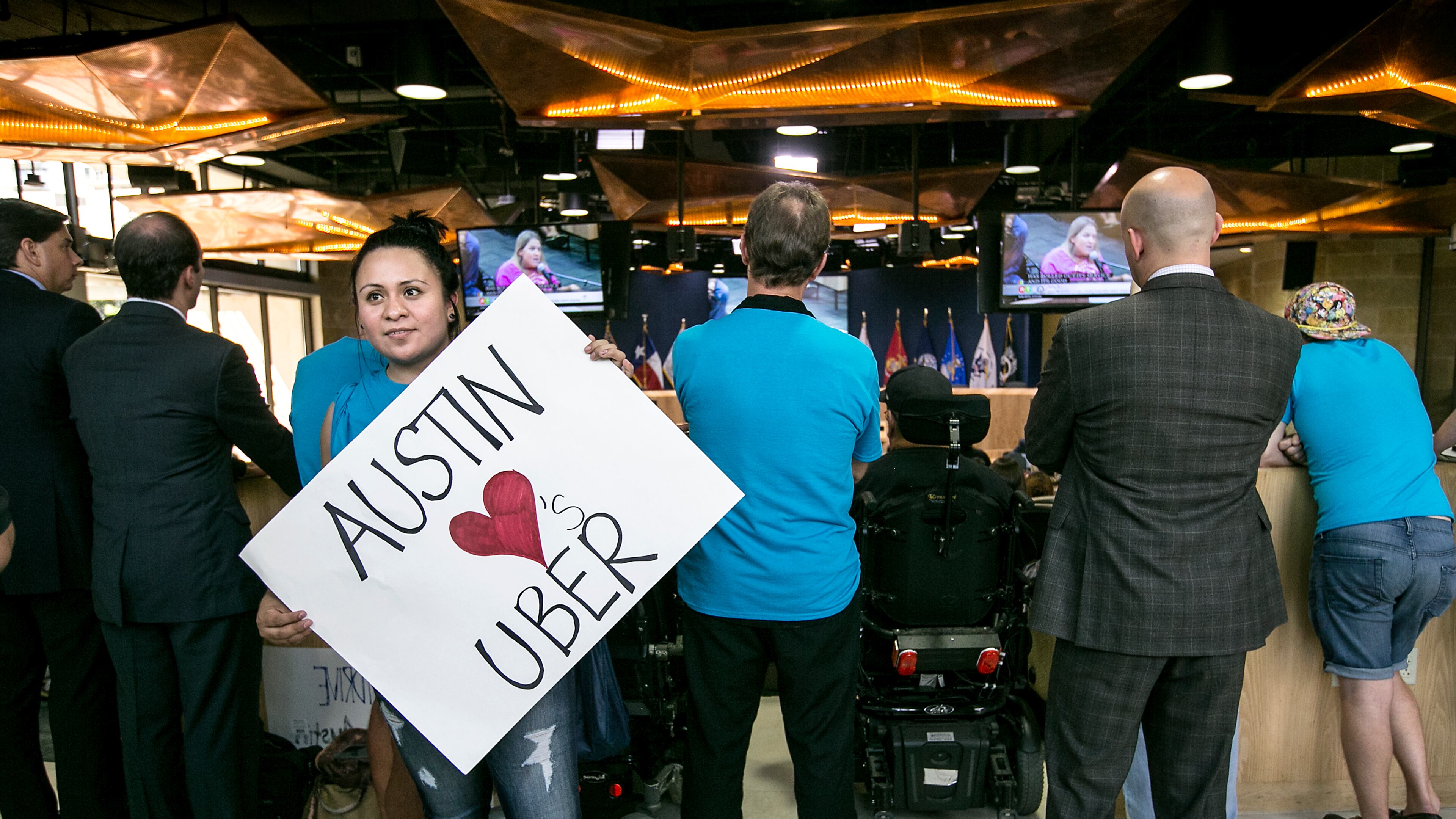Austin's tech community gets serious about lobbying City Hall

Local tech companies are launching an aggressive new lobbying effort to ensure they are no longer on the losing end of votes at Austin's City Hall.
The Austin Technology Council said Tuesday it is creating a "policy coalition" comprised of local entrepreneurs and representatives of larger tech firms such as Google. That coalition will direct the tech council's lobbying efforts.
"Tech, as an industry in this town, does not have a good relationship with our elected officials," said Barbary Brunner, the CEO of the Austin Technology Council. "It's not because we've purposely built a combative relationship, but because we haven't bothered to build one."
Brunner said the goal isn't to pass a long list of legislative priorities, but to build relationships with the City Council and educate them on the role of the tech industry in Austin. She said they want to help council members understand which tech firms are in their district, for instance.
Though lobbying often goes hand-in-hand with political endorsements and campaign spending, Brunner said they have no plans to endorse candidates or donate to campaigns.
"Certainly not in this election cycle," Brunner said. She said they will be watching how the council votes as a "barometer" on the success of their own outreach efforts.
Though individual companies have hired their own lobbyists at times to fight for or against various proposals under consideration by the Austin City Council, there has never been an organized effort by the tech industry to lobby local officials.
"This is a very different constituency that has rarely been involved at City Hall," said Trey Salinas, a spokesman for a group of large energy users that often lobbies on Austin Energy issues. That group includes tech firms. "I would think the council would be receptive."
The tech community has had a strained relationship with the Austin City Council in the last year. Some tech entrepreneurs and startup founders were deeply unhappy about the City Council's votes to regulate ride-hailing firms and short-term rentals.
Though the City Council - and its supporters - have argued it is the council's job to protect public safety and the residential character of neighborhoods, many in the tech community said they feared the council's decisions would harm Austin's reputation as a tech hub.
The Austin Technology Council's newly-formed policy coalition will be co-chaired by Dan Graham, the CEO of BuildASign and Lawrence Waugh, co-founder of Calavista Software.
Also included in the policy group is David Altounian, a professor of entrepreneurship at St. Edward's University and the founder of Motion Computing; Kevin Callahan, co-founder of MapMyFitness; and Gerardo Interiano, the head of external affairs for Google in the Southwest.
The Austin Technology Council has 280 member companies that represent a workforce of over 60,000 people. Some of its better-known members include Google, HomeAway and Samsung. It started out as the Austin Software Council in 1992, but changed its name in 2002.
Brunner said the tech council has hired strategy consulting firm BVE Partners to help them with their advocacy efforts. Grover Bynum, a founder of BVE Partners, has been an policy adviser to the tech council for over three years.
This year marks the first time the tech council has gotten involved in local politics. Earlier this year they endorsed Mayor Steve Adler's $720 million transportation bond proposal.
The tech council's advocacy efforts will not be exclusive to City Hall, and they plan to lobby the county and state government as well.
"I think it's really important to start in our own backyard," Brunner said. "We have the most to gain initially from building a relationship with the council."
The timing is right to launch a coordinated lobbying effort, according to Graham, the co-chair of the ATC policy coalition.
Prior to the recent votes on ride-hailing and short-term rentals, the tech industry in Austin didn't pay much attention to local issues, Graham said. But the decisions affecting the "sharing economy" companies of Uber, Lyft, HomeAway and Airbnb rattled local tech entrepreneurs.
Graham said he wants to harness the angry reactions to the recent Austin City Council decisions into a productive discussion about how tech companies can help the city address chronic citywide problems, such as housing affordability or traffic.
"There has been a collision between the tech space and government," he said. "That's created a lot of energy and political will within the tech community that hasn't really existed before. That's really exciting."
